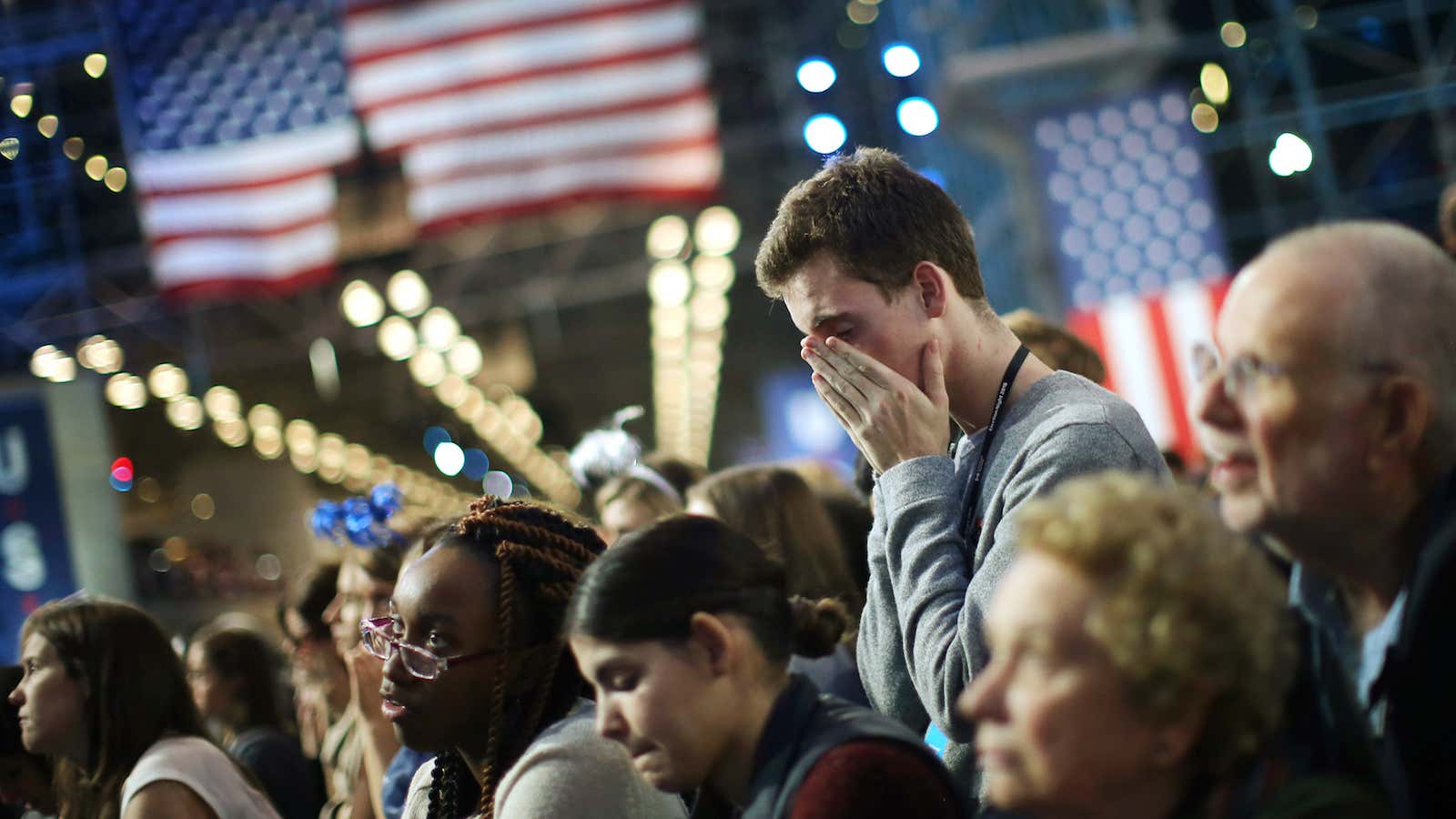The fear shifted to us on Tuesday night.
On the eve of Nov 8., as Republican red began to sweep through the United States’ electoral map, there was a transfer of power from the Democrats to the Republicans. At the same time, there was a different, less tangible, transfer that was just as important. In this deeply divided country, a sense of powerlessness shifted from angry Trump supporters to those of us who had believed he could not win.
As the scale of Trump’s victory unfolded on election night, my social-media feeds filled with fear and questions: How could this be happening? What would we tell our children in the morning? What would this mean for minorities, the LGBT community, Latinos, Muslims, the disabled, and women? What would this mean for the markets? Was this still our country? If we were not white or male, were we safe?
The online chatter in my feeds was coming from all across the country, but all from blue states—Illinois, New York, Virginia, California, Washington, Maryland, Washington, D.C, in my specific feeds—talking to each other in our comfortable bubbles. Like millions of other people in a very fragmented media world, I had chosen to friend and follow people and outlets that reflected my own world view. Our bubbles cocoon us, but they also lull us into a false sense of understanding and underestimation.
Now it is our turn to get a taste of powerlessness in the face of massive change. The panic and sadness in my circles was an eerie reflection of how many people must have felt prior to the election; a sense that they were in a country that was leaving them behind, that they were stuck with the status quo, or that they were not being heard.
We are the underdogs now.
In the cold aftermath of the election, it is easy to see just how little we understood those who thought differently from us. Three weeks ago, I had a revealing conversation with a Trump voter. He was white, an electrician, an Army veteran who felt caught between rising taxes and diminishing opportunities. He shared his worries about college becoming unaffordable for his child and about being stuck with the tab to support those on welfare or undocumented immigrants. “I don’t even like Trump, but I think he is the only one who can shake things up,” he said. There were echoes of that conversation as I spoke with a very affluent businessman who said he despaired of the gridlock in the country and disliked the two major party presidential candidates, but thought Trump to be the lesser of the two evils. “Hillary lacks the ability to get people together,” he said. “Trump might.”
When you see change that you cannot embrace and are powerless to stop or influence, it creates fear and panic. As my experience on election night taught me, it is easy to be swayed by what we see and read within our own groups and to remain oblivious to those outside. There were many factors that led to the Republican sweep—economic anxieties, immigration, race, gender, security issues, the Supreme Court—but underlying it all was fear of being swept into a world which was unfamiliar.
President Barack Obama came to office in an election based on hope. His successor won in an election of fear. As the role reversal ripples through the country, one thing is clear: We may not always be sympathetic to or agree with each other, but we do need to listen. As half the country knows and the other half is realizing, there is nothing more painful than feeling left out.
